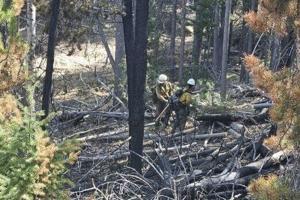This City is Ours is undoubtedly one of the biggest dramas on TV, with the fifth episode in this thrilling crime drama airing this evening - when an unexpected player causes trouble for the gang. The lead director said that hearing it compared to the hit Sopranos is a huge compliment. Over the past few weeks we have been featuring interviews with the cast.
This week it is the turn of Saul Dibb. Interview with Saul Dibb (Lead Director) Nearly half a century ago a gangster film inspired and won over not only a young Saul Dibb but a global audience. Are you confident your own latest directorial work - which is also about organised crime with a stark difference - will capture our imaginations? Oh, yes, that was Bugsy Malone back in 1976.

I was an eight-year-old filming things on my dad’s Super 8 camera – he was a documentary maker - and it blew me away. Alan Parker’s film made a lasting impact on me - and has on my kids too. You can see on screen that everyone is giving one hundred per cent and that they had a great time making it.
This City Is Ours is obviously very different in tone (it’s definitely not for kids!) but I’d like to think it shares those qualities, too. As a director, how important is to see that everyone is on board with presenting a story that has something new and relevant to say in the popular crime drama genre? (Image: Image: BBC/Left Bank Pictures/James Stack) It’s massively important, and I can say that having been on sets - earlier on in my career and thankfully not that many - where there hasn’t been that feeling and it makes a huge difference. I felt so excited to be making This City Is Ours and hoped everyone else in the cast and crew was.
Along with producer Simon Maloney - who was the rock that held the whole series together, and I cannot speak highly enough of - we really wanted to create a positive atmosphere on and off set for everyone involved. READ MORE: This City is Ours stars give their take on the BBC drama Interviews with Sean Bean and James Nelson Joyce from This City is Ours I fell in love with Liverpool and the city. Liverpool people make it easy for you to work there, they are funny, talented, committed and passionate and are excited to be telling a story set in their city with the well-known - and soon to be well-known - stars that come with it.
You have a responsibility with subject matter like this not to glamourise it, to be truthful and to humanise it. I felt the same responsibility when I made my first feature film Bullet Boy way back in 2003 with Ashley Walters. That was about gun crime in Hackney but for me it was really about a relationship between two brothers.
This is a drama about the drugs underworld but it’s really a love story and a complex family saga. It’s the people at the heart of the story that matter. (Image: BC/Left Bank Pictures/James Stack) What was it about writer Stephen Butchard’s work that appealed to you? Stephen is a very clever writer, and his script is beautifully constructed with superb dialogue.
It is character-led and he has great attention to detail. You get to know and care about the people despite all the terrible things they sometimes do. As a drama it jumped out for me.
I could see myself there - I was inside the world. And I felt strongly that I if I applied a convincing and authentic approach to bringing the project to life I could fully realise all the potential I saw in it. Here we see families clash and collide.
We see the choices they make and why they come to the decisions they do. It is a very truthful drama and Stephen works so hard on his character development. There is nothing superficial, cartoonish, flash or obvious.
I have heard it has been called the ’Scouse Sopranos’ which is obviously a great compliment. There are also certainly elements of Macbeth layered beneath, which people can choose to see or not. But most of all I do think it’s become its own thing, that it feels different to anything else that’s come out of British television.
The series has an impressive mix of household and up-and-coming stars. Did you know who you wanted to cast from the outset? As a director you are involved in every creative decision, of which casting is perhaps the single most important area. It's an essential part of my job and I worked closely with the casting director, Julie Harkin, who I’ve collaborated with on many projects and whose taste I trust completely.
Overall you're steering the ship in a certain direction and have to make sure all the departments are moving in line with that to deliver unified performances, look and tone throughout. As a director, you not only bring your taste and choice of actors to a project, but you're also responsible for creating an environment where they can do their best work, from the recognisable names to the emerging talent. Getting the casting right is crucial.
You need big names to anchor an ambitious and international series like this and we have them. There are grandees such as Sean Bean and Julie Graham – who are not only brilliant but very generous people who are always at pains to help and support all the other members of the cast. J ames Nelson-Joyce is in his first lead role playing Michael Kavanagh, a man who has known nothing but the drug trade since his teens but has now fallen in love with somebody who is completely outside of it - which inevitably leads to some big decisions with wide repercussions.
James was made for this role - hugely loveable and sensitive but able to turn in an instant to become menacing and violent. He’s also unbelievably striking on screen, with a real movie star face. If there is any justice in the acting world, he will become a household name - as will other members of the predominantly Liverpool cast who are part of a golden generation we were lucky enough to tap into.
Working class voices who, I feel, are channelling some of their own stories along the way - ones that have been criminally overlooked for far too long. This City is Ours looks different..
. I’m inspired by the late great Canadian director Jean-Marc Vallée, who directed Dallas Buyers Club, and the brilliant French director Jaques Audiard. I like to use exclusively natural light and not traditional film lighting and prefer real locations and streets over building film sets.
I don't like being hemmed in and want the actors and camera to have the space to move around whenever we need. I like the freedom to focus on character and performance first and foremost - set against the backdrop of a very real and believable world. Liverpool is a very photogenic city - from its stunning architecture to its working docks and river to its grimy backstreets - and it’s those contrasts that we wanted to capture.
The city itself is a star, and we approached shooting it the way American films have shot places like Boston, another dock and river city with a strong Irish influence. And it sounds different..
. As well as the visual contrasts, I wanted what we hear to be as varied as possible. Sean Bean’s character Ronnie Phelan enjoys songs from the crooners like Tony Bennett, while Diana plays Aretha Franklin at work, the family dance to 90s house music classics such as Show Me Love, and at the Christening party they play Frankie Valli - while in a chophouse it’s drill.
It’s all part of creating a whole, rich, believable world that is true to the characters who inhabit it. Black humour plays an important part in the entire series - it is, after all, set in Liverpool and humour is the soul of this city - and there is a lot of black comedy in Stephen’s work. I tried to develop this quality wherever possible, and some of my favourite blackly comic moments involve music.
If you could use three words to sum up This City is Ours, what would they be? I’d love people to think it feels ‘fresh’, and also that it's ‘bold’. My third key word sums up the characteristic that anchors these eight episodes with their themes of love and betrayal and of loyalty and corruption – and that is ‘authenticity.’.
Health

'It has been called the ’Scouse Sopranos’ which is great compliment'

Interview with Stephen Butchard (Creator, Writer and Executive Producer)















